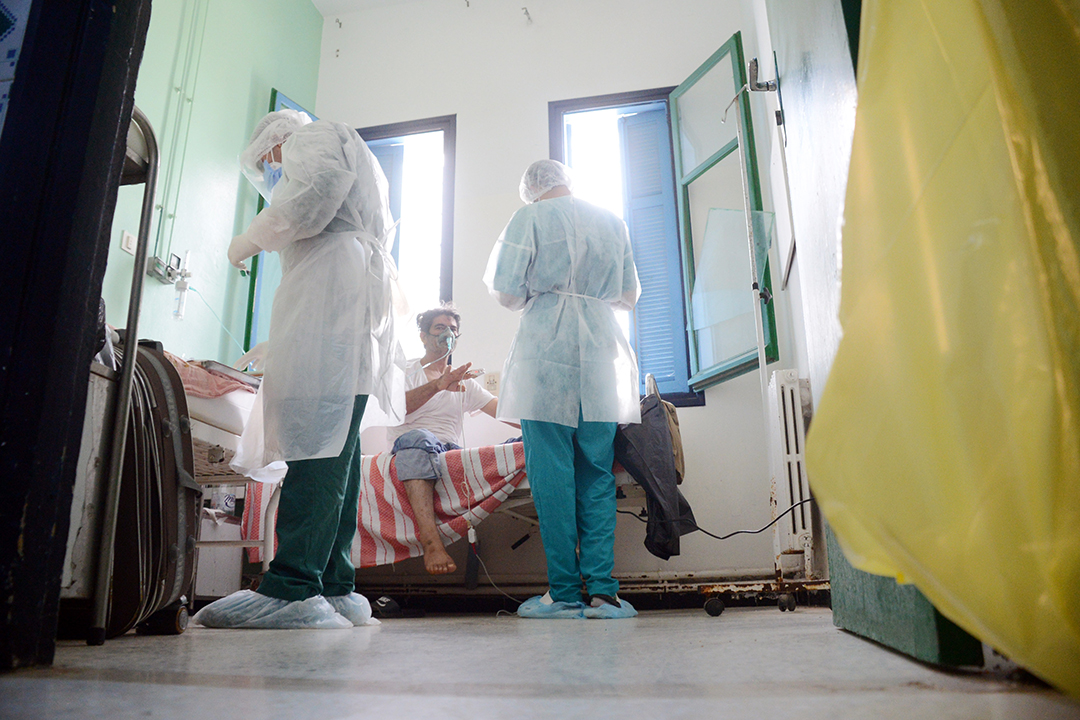Omicron Symptoms Less Severe, Still Deadly
ADF STAFF
Muscle aches, fatigue, a scratchy throat and night sweats: Those are the most common symptoms of omicron, the COVID-19 strain that emerged in late November 2021.
It was South African Dr. Angelique Coetzee who first alerted health officials to the new variant based on these symptoms, which were different from those she had seen in previous COVID-19 patients. Now, Coetzee’s observations have been backed by research conducted by health science company Zoe and King’s College London. The COVID Symptoms Study found that coldlike symptoms such as a runny nose, headache, fatigue, sneezing and a sore throat were most commonly associated with the highly contagious strain.
Coetzee, who chairs the South African Medical Association, said she treated a patient in mid-November who complained of heavy fatigue for two days, as well as body aches and a headache.
“Symptoms at that stage were very much related to normal viral infection,” Coetzee told Reuters. “And because we [had not] seen COVID-19 for the past eight to 10 weeks, we decided to test,” she said, adding that the patient and his family tested positive for coronavirus.
For almost two years, the Zoe study has collected data from 480 million reports submitted via the study’s app that showed that COVID-19 symptoms have evolved as the virus has, Tim Spector of King’s College London wrote in The Conversation Africa.
Patients with COVID-19’s original and alpha versions mostly experienced cough, fever and loss of smell, shortness of breath and gastrointestinal problems, among other symptoms, according to the Zoe study. Patients who contracted the delta variant most commonly experienced a runny nose, sore throat, persistent sneezing, headaches and a cough.
“Omicron appears to be continuing the trend set by delta,” Spector wrote. “It’s causing symptoms that are much more like a regular cold … and fewer general systemic symptoms, such as nausea, muscle pains, diarrhea and skin rashes.”
Spector added that “while omicron and delta may feel like a cold to many of us, it can still kill or cause long-term symptoms that disrupt daily life especially for people who are … immunocompromised.”
Health experts agree that the variant should not be taken lightly.
“What we are learning is that people with underlying conditions, people with advanced age … can have a severe form of COVID-19 following infection from omicron,” Dr. Maria Van Kerkhove, COVID-19 technical lead at the World Health Organization (WHO), said in an interview on the WHO website. “It is less severe than delta, but that doesn’t mean it is mild.”
She added that the variant was spreading at an “intense level,” burdening health systems worldwide and disrupting essential services.
According to the WHO, the best ways to prevent the spread of omicron are to wear a mask, practice social distancing, keep indoor spaces well-ventilated, maintain personal hygiene, avoid crowds, work from home if possible, self-isolate and get a COVID-19 test if you develop symptoms.
Van Kerkhove said that experts don’t yet completely understand the impacts of post-COVID-19 conditions and offered sobering thoughts on the pandemic’s future.
“Omicron will not be the last variant you hear about,” she said. “The possibility of future emergence of variants of concern is very real. And more variants that emerge, we don’t understand what the properties of those variants may be.”
She added that new variants are bound to pose new challenges.
“Certainly, they will be more transmissible because they will need to overtake variants that are currently circulating,” she said. “They could be more or less severe, but they could also have properties of immune escape.”


Comments are closed.